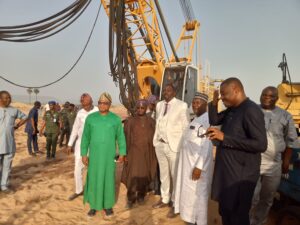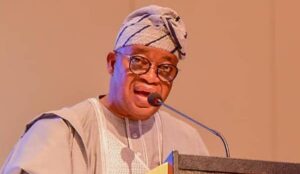
Agents vow to shutdown ports activities over Customs 15% NAC levy
By Seun Ibiyemi
Following the introduction of the 15% NAC Levy (National Automotive Council) on all vehicle imports through the Ports, freight forwarders have vowed to shutdown the various RoRo ports in Lagos.
The 15% NAC is coming barely one week after the Customs reduced duty payment on vehicles from 35% to 20%.
Vice President of Association of Nigerian Licensed Customs Agents (ANLCA) Dr Kayode Farinto has directed members not to pay the NAC 15% Levy. He described as as exploitative policy and an attempt to swindle innocent Nigerians.
“Let us collectively resist this, should you see any NAC levy whenever you want to make your declaration, do not assess this declaration. it is another attempt to swindle innocent Nigerians and force them to pay by some fifth Columnist. Please Resist from Monday,” he said
In a social media platform monitored by our correspondent at the weekend, the freight forwarders in various posts vowed to gather at the port today.
One of them said, “The customs will see War and Resistance. Enough is Enough, let our protest machineries be warming… Aluta Continua!!!”
Another elder of the Tin Can Chapter of ANLCA (names withheld) posted that, “it’s high time we come out with one voice whether you are a union person or not, we are all concerned, we don’t want to be rendered jobless. The federal government should focus on the oil industry, enough is enough, the situation is tensed for now.
“By 8 a.m. tomorrow morning we should assemble at our known Ojota (Tin Can Port) to strategies on the way forward,” another post read.
Meanwhile, the former President of National Association of Government Approved Freight Forwarders (NAGAFF) Dr Eugene Nweke has called for calm and strategy from the fuming freight forwarders in dealing with the Federal government on 15% NAC policy.
He said the policy is purely initiated by the Federal Ministry of Finance, but implemented by Customs.
Nweke commended the stand of ANLCA as an association for expressing its dissatisfaction on the policy, but warned that if care is not taken, they might end up incurring demurrages and storage charges from shipping companies and terminal operators in the cost of protesting the policy.
“It is also worthwhile to commend the ANLCA leadership for expressing dissatisfaction over this latest NAC Levy of 15%, notwithstanding, the bottom line remains an adherence to the 35% status quo on imported used vehicle into Nigeria.
“It has become obvious and apt for the association to constructively engage the Ministry of Finance and the National Assembly on the subject matter, directing practitioners not to pay may amount to penny wise pound foolish, mostly so, where demurrage and storages charges are not promptly regulated.”
In his reaction on the 15% NAC Levy, the NAGAFF former President kicked against the introduction of the policy, describing as administrative rigmarole.
“The economic impacts of the 2% NAC collection for a period of 2 decade plus – How developed is our automobile industry?
“The import policy of 20% on cars Importation and 10% on Buses and Trucks Importation – Any accountable economic benefits?
“The 2013 Automobile Policy leading to the issuance of permit to over 130 automobile plants, with its accompany 35% Import Duty and 35% Levy on New vehicles and 35% Duty with 7.5% Vat on used vehicles – is aimed defeated or actualised, because most of the licensed automobile plants have turned to mere traders, in the face of increasing import volume for used and accidented vehicle, mostly so, where the intent of the policy was to evolve a mass production of quality and affordable vehicles for the Nigeria populace.
“The recent reversed policy of 20% Duty and 7.5% Vat. Now the 20% Duty, 7.5% VAT and 15% NAC Levy on used vehicles.
“Without sounding immodest, this incessant auto policy is rather an administrative rigmarole and a defeat of objectives, because when we compute both the negative impacts of the inherent over taxation tendercies of the auto policy formulations to the economy and its citizenry, it far outweighs the positive, especially in the context of job creation and local capacity development.
“Here again, the interplay between political and economic of interests becomes a thing of concern, as unstructured auto policy tantamount to counter productive”
“May I therefore, summarized by reiterating that, our dear country is in dare need of a national auto policy that is definitive and sustainable in design and application, devoid of political antics, but driven by prompt sense of patrioticism that gears towards nationhood obligations,” he said.



